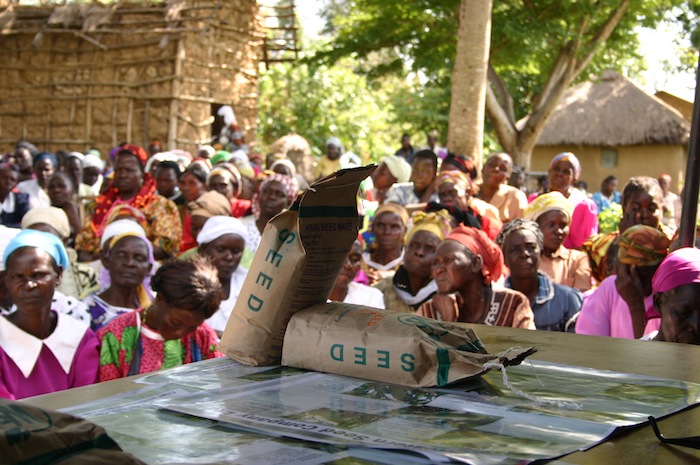World Food Day: Availability, Access and Use : Stronger agricultural inputs, tools and financing are key
Editor’s note: World Food Day, a global movement to end hunger, took place on October 16.
As we commemorate World Food Day 2012 it is crucial to explore the issues surrounding food security in a local and global context. In much of the world populations are expanding dramatically with demand for food increasing in-step. Food security is composed of three facets; availability, access and use, and in many of the countries where we invest we see challenges across all three.
At Acumen Fund we believe that a critical way to improve food security is by improving smallholder farmers’ access to stronger agricultural inputs, tools and financing. In a sector where innovation abounds, millions of smallholder farmers are still struggling to produce decent crop yields, resulting in poor nutrition, bad health and stagnant growth. For the last decade Acumen has been addressing this issue through a series of innovative investments in agriculture in Africa and South Asia.
With our investment in GADCO in Ghana, Acumen Fund is targeting all three causes of food insecurity at a national level through a combination of improved yields, services and access to consumer markets in the rice market. Right now rice productivity in Ghana is 40 percent less than the global average. GADCO is creating a program that provides smallholder farmers with higher-yield seeds and then provides direct access for the production to some of the largest national consumer markets. GADCO has the potential to triple incomes for all farmers involved and impact more than 35,000 lives nationally.
Western Seed, based in Kenya, focuses on addressing the weak productivity of maize farmers in much of the country. The company uses well-established hybrid seed varieties that allow farmers to double their yields, significantly improving their incomes and quality of life. Since Acumen’s investment three years ago, Western Seed has distributed to over 300,000 farmers across Kenya.
In Pakistan, on average, it takes five cows to produce the equivalent milk of one American cow. This is because most farmers in Pakistan cannot afford the high-quality bull semen that can improve productivity within local livestock breeds. Founded in 2005 in Narowal, Pakistan, Jassar Farms has established a process of bringing high-quality bull semen to poor farmers at very affordable prices. It is the only private sector farm in Pakistan that has acquired the technology to transfer embryos, and has the potential to increase milk supplies for more than 250,000 farmers in the region.
The world has advanced to a point where no one should be going hungry, but improved food security will require innovation in agricultural production, as well as innovation across the supply chain that can improve livelihoods and local markets through improved processing and distribution. As we focus on World Food Day we celebrate the entrepreneurs on the front lines of bringing innovations to the world that can help households, communities and nations achieve greater food security.

Farmers in Kenya at a community meeting about Western Seed
- Categories
- Agriculture, Health Care
